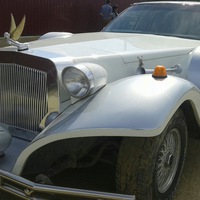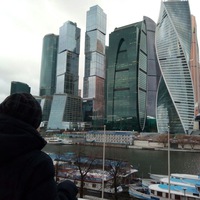
Разобрать слово дикие с помощью морфологического разбора
 0
0
 0
0
Ответы на вопрос
 Внимание! Ответы на вопросы дают живые люди. Они могут содержать ошибочную информацию, заблуждения, а также ответы могут быть сгенерированы нейросетями. Будьте внимательны. Если вы уверены, что ответ неверный, нажмите кнопку "Пожаловаться" под ответом.
Внимание! Ответы на вопросы дают живые люди. Они могут содержать ошибочную информацию, заблуждения, а также ответы могут быть сгенерированы нейросетями. Будьте внимательны. Если вы уверены, что ответ неверный, нажмите кнопку "Пожаловаться" под ответом.

Часть речи
Часть речи слова дикие — имя прилагательное.
Морфологические признаки
Начальная форма: дикий (именительный падеж единственного числа мужского рода);
Постоянные признаки: качественное;
Непостоянные признаки: множественное число, именительный падеж, полная форма.
Синтаксическая роль
Может быть различным членом предложения, смотрите по контексту.
 0
0
 0
0

Morphological Analysis of the Word "дикие"
To perform a morphological analysis of the word "дикие," we can break it down into its constituent parts and analyze each part individually.
The word "дикие" is an adjective in the plural form. Let's break it down:
- дикие: This is the base form of the adjective. It is derived from the noun "дикая" (wild) and is used to describe multiple objects or entities.
Now, let's analyze the morphological features of the word "дикие":
- Gender: Adjectives in Russian can have different forms depending on the gender of the noun they modify. However, since we don't have the specific noun that "дикие" modifies, we cannot determine the gender of the noun.
- Number: The word "дикие" is in the plural form, indicating that it describes multiple objects or entities.
- Case: Adjectives in Russian can also change their form depending on the case of the noun they modify. However, since we don't have the specific noun that "дикие" modifies, we cannot determine the case of the noun.
- Degree: Adjectives in Russian can also have different degrees of comparison, such as comparative and superlative forms. However, since we only have the base form "дикие," we cannot determine the degree of comparison.
In summary, the word "дикие" is an adjective in the plural form, but without more context, we cannot determine its gender, case, or degree of comparison.
 0
0
 0
0
Топ вопросов за вчера в категории Русский язык
Последние заданные вопросы в категории Русский язык






-
Математика
-
Литература
-
Алгебра
-
Русский язык
-
Геометрия
-
Английский язык
-
Химия
-
Физика
-
Биология
-
Другие предметы
-
История
-
Обществознание
-
Окружающий мир
-
География
-
Українська мова
-
Информатика
-
Українська література
-
Қазақ тiлi
-
Экономика
-
Музыка
-
Право
-
Беларуская мова
-
Французский язык
-
Немецкий язык
-
МХК
-
ОБЖ
-
Психология
-
Физкультура и спорт
-
Астрономия
-
Кыргыз тили
-
Оʻzbek tili















